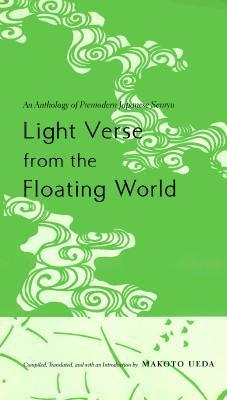What do you think?
Rate this book


288 pages, Paperback
First published October 1, 1999
tarai kara tarai ni kawaru yume no uchi
from one bathtub
to another bathtub
it's all a dream
dete yuke ni narete nyoubo wa sutteiru
"You're divorced!"-
but his wife, who's heard it before,
just sits there, smoking
mou hoka ni shinite nashi ka to fugu wo kai
"Anyone willing
to die with me?" asks the man
buying a fugu